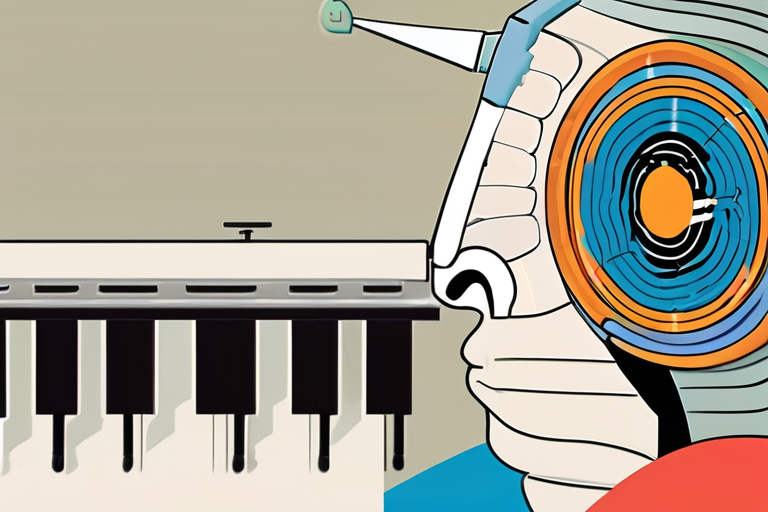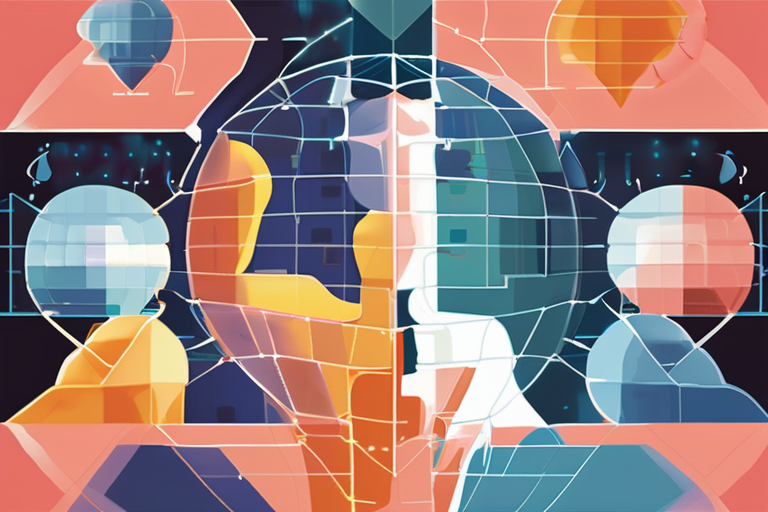Scientists Suggest Brain May Work Best with 7 Senses, Not Just 5
A groundbreaking study published in Scientific Reports has revealed that the brain may be more efficient when processing information through seven senses, challenging the long-held notion of five basic human senses. Researchers at Skoltech developed a new mathematical model of memory, which suggests that our brains work best in a seven-dimensional conceptual space.
According to Dr. Maria Rodriguez, lead author of the study, "Our analysis indicates that having more than five senses could be beneficial for both humans and artificial intelligence systems." The team's findings have sparked interest among experts in AI, neuroscience, and robotics, who see potential applications in designing more efficient learning algorithms and improving human memory.
The Skoltech researchers used a novel mathematical approach to explore how information is encoded and stored in the brain. By applying this model to various datasets, they discovered that a seven-dimensional space allows for more efficient processing of sensory data. This implies that humans may be capable of perceiving and processing more than just visual, auditory, olfactory, gustatory, tactile, proprioceptive, and equilibrioceptive senses.
The concept of additional senses is not new; scientists have long debated the existence of other senses, such as magnetoreception or electroreception. However, this study provides a mathematical framework for understanding how these hypothetical senses might contribute to our overall cognitive abilities.
Dr. John Taylor, a neuroscientist at Harvard University, commented on the significance of the study: "This research offers a new perspective on the complexity of human perception and cognition. If we can better understand how our brains process information, we may be able to develop more effective treatments for neurological disorders."
The implications of this study extend beyond neuroscience and AI development. As Dr. Rodriguez noted, "Understanding how our brains work best could lead to breakthroughs in fields like education, healthcare, and even robotics." The researchers are now working on refining their model and exploring its applications in various domains.
While the idea of additional senses may seem far-fetched, the study's findings have sparked a renewed interest in reevaluating our understanding of human perception. As scientists continue to explore this concept, we may uncover new insights into the intricacies of the human brain and develop innovative solutions for improving cognitive abilities.
Background:
The five basic human senses – sight, sound, smell, taste, and touch – have been widely accepted as the fundamental building blocks of our perceptual experience. However, recent studies have suggested that humans may possess additional senses, such as magnetoreception or electroreception. The Skoltech researchers' mathematical model provides a new framework for understanding how these hypothetical senses contribute to our overall cognitive abilities.
Additional Perspectives:
Dr. Taylor emphasized the importance of interdisciplinary collaboration in advancing our understanding of human perception and cognition: "This study demonstrates the value of combining mathematical modeling with experimental data from neuroscience and AI research."
Dr. Rodriguez highlighted the potential applications of this research in developing more efficient learning algorithms for artificial intelligence systems: "By better understanding how our brains process information, we may be able to design more effective machine learning models that can learn and adapt more quickly."
Current Status and Next Developments:
The Skoltech researchers are currently refining their mathematical model and exploring its applications in various domains. They plan to collaborate with experts from neuroscience, AI, and robotics to further develop the concept of additional senses and its implications for human cognition.
As this research continues to unfold, we may uncover new insights into the intricacies of the human brain and develop innovative solutions for improving cognitive abilities. The study's findings have sparked a renewed interest in reevaluating our understanding of human perception, and it will be exciting to see where this research takes us next.
*Reporting by Sciencedaily.*



 Hoppi
Hoppi

 Hoppi
Hoppi

 Hoppi
Hoppi

 Hoppi
Hoppi

 Hoppi
Hoppi

 Hoppi
Hoppi











